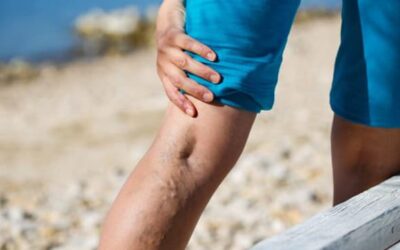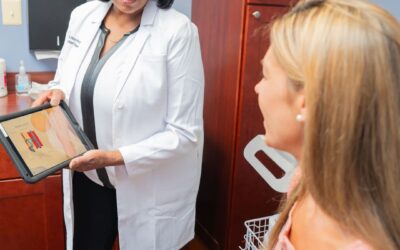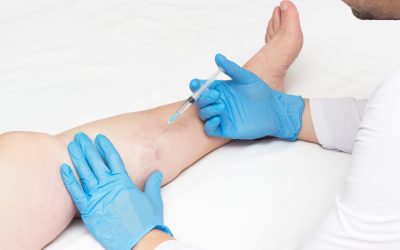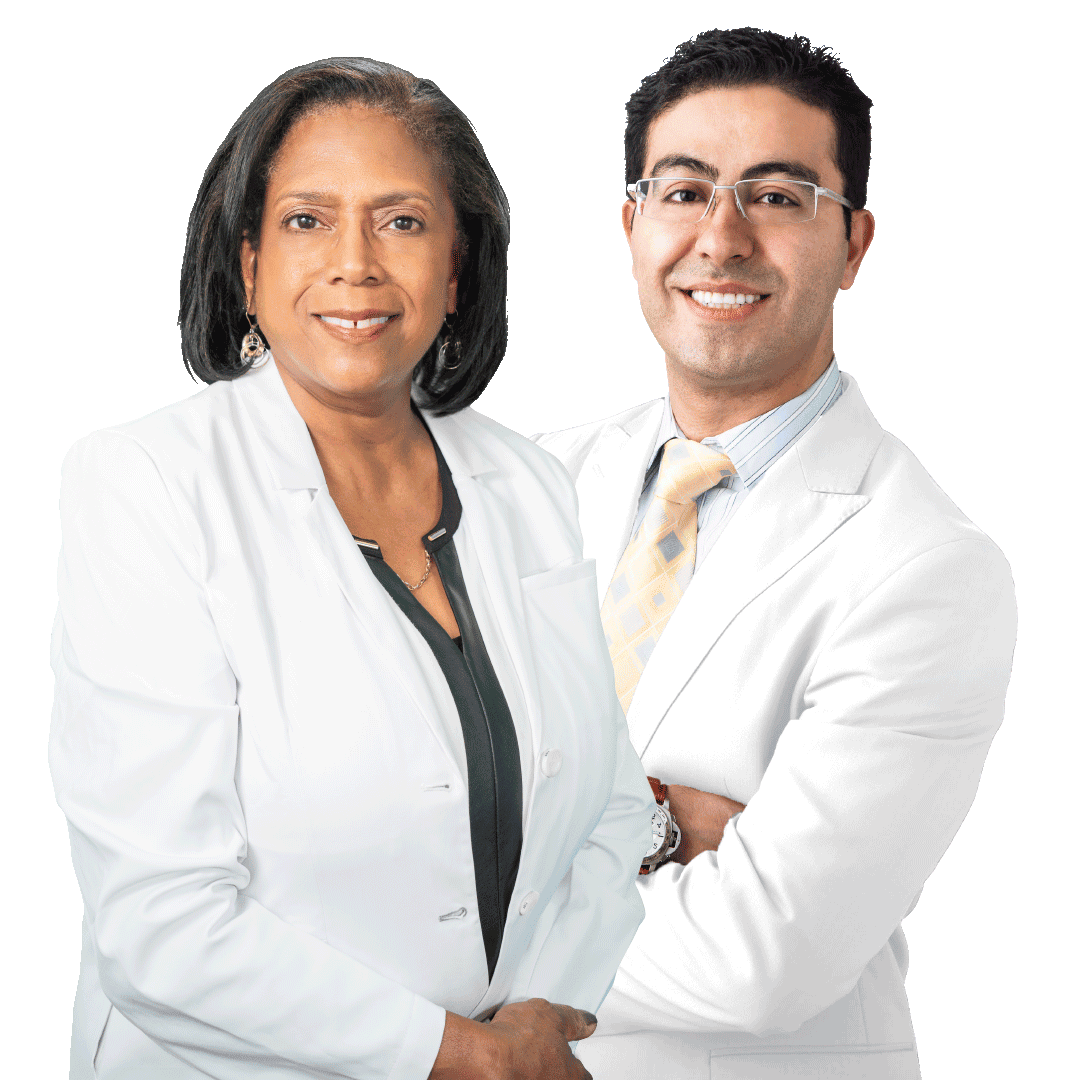Top Maryland Vein Doctors
How to Get Rid of Varicose Veins From Pregnancy?
What causes varicose veins during pregnancy?
If you’re pregnant, you may have noticed dense clusters of damaged blood vessels and broken capillaries on your legs. You might have also noticed thick ropes of twisted, tangled, and knotted blood vessels protruding out of your skin’s surface. Most people experience self-consciousness, social anxiety, and discomfort because of the appearance of spider veins and varicose veins. But the presence of varicose veins during pregnancy is extremely common — pregnancy is one of the primary risk factors for varicose veins.
But what causes varicose veins during pregnancy?
To understand why varicose veins appear during pregnancy, you must understand the root cause of varicose veins — chronic venous insufficiency.
Healthy veins are responsible for transferring blood from various parts of the body to the heart, a function in which the veins are supported by valves, one-way mechanisms that allow blood to flow towards the heart against the force of gravity. Chronic venous insufficiency is a medical condition wherein the vein valves collapse and gravity forces blood to flow backward and pool in the leg veins, eventually leading to vascular dilation and varicose veins.
Pregnancy leads to numerous physiological changes within the body, some of which can weaken the vein valves and increase the risk of vein disease.
When you’re pregnant, the uterus applies pressure on the inferior vena cava traveling from the legs to the heart, which can potentially damage the vein valve. Your body also produces a higher volume of blood, which places more pressure on the leg veins. Furthermore, your body also produces more estrogen and progesterone hormones, which can weaken the vein valves and make them go floppy. Because of these physiological changes, the vein valves may collapse, leading to chronic venous insufficiency and varicose veins.
Now that you understand what causes varicose veins during pregnancy, it’s time to discuss how to get rid of varicose veins from pregnancy.
If you have varicose veins during pregnancy, we encourage you to visit our state-of-the-art medical centers for vein treatment in Maryland. Our vein doctors have specialized training in the diagnosis and treatment of vascular conditions. They use minimally invasive vein treatments, such as radiofrequency ablation and venaseal, to destroy the diseased vein and reroute the accumulated blood into healthier leg veins, following which they remove the unhealthy varicose veins. Our minimally invasive procedures ensure optimal results without complications or downtime.
Please schedule an appointment to explore your vein treatments in Maryland.
How to treat varicose veins naturally during pregnancy?
Unfortunately, there’s no way to naturally “treat” varicose veins. Home remedies and lifestyle changes can’t fix the diseased vein valves responsible for your vein problems. And most of the home remedies you find online, such as witch hazel and apple cider vinegar, are useless against spider veins and varicose veins. You can implement some lifestyle changes to prevent the condition from worsening and reduce the symptoms, but the only way to “treat” varicose veins is through minimally invasive procedures.
Below, we highlight some of the most effective lifestyle changes to reduce the symptoms of vein disease and prevent varicose veins from worsening.
Wear compression stockings and support hosiery
Compression stockings and support hosiery apply pressure on your leg veins, pushing some of the accumulated blood towards the heart. They also prevent blood from accumulating in the leg veins. As such, you should wear compression stockings and support hosiery regularly during pregnancy.
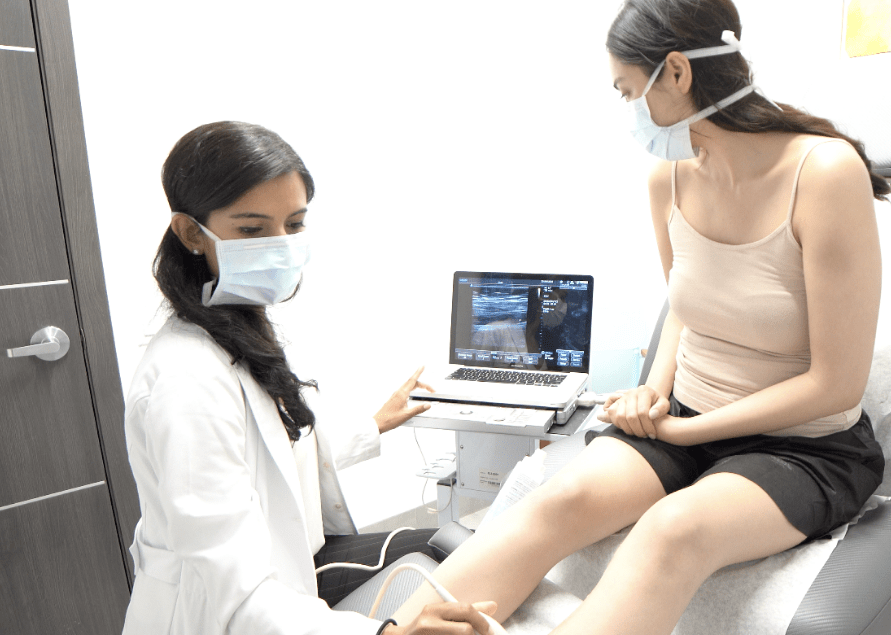
We know health insurance is confusing so we will help you check if you’re covered:
FREE Coverage Checker:
Don’t wear high heels
When you wear high heels, you apply more pressure on the leg veins, leading to increased blood accumulation. But flats and comfortable slippers promote blood circulation towards the heart, preventing varicose veins from worsening. That’s why you should wear comfortable flats instead of high heels during pregnancy.
Don’t sit or stand still for long periods
When you sit or stand still for long periods, more blood accumulates in the leg veins because of gravity. That’s why vein disease is particularly common amongst individuals with jobs that necessitate long periods of sitting or standing still, such as drivers, teachers, nurses, and those with desk jobs. Take short breaks to walk around the office every 30 minutes.
Engage in low-intensity exercises regularly
If you have varicose veins, you must engage in low-intensity cardiovascular exercises, such as running, swimming, cycling, and yoga. These exercises activate your calf muscles, thereby pushing some of the accumulated blood to the heart. They can also improve blood circulation to the heart, which improves the symptoms of vein disease.

Visit Our Maryland Vein Treatment Center
Elevate your legs while sitting down
You must elevate your legs while sitting down or prop them up on pillows while lying down. When you elevate your legs above your heart’s level, gravity pushes the blood in your leg veins towards the heart, which can alleviate the symptoms of vein disease.
Varicose veins vs. stretch marks: what’s the difference?
Varicose veins are different from stretch marks. Varicose veins are dense blood vessels that bulge out of the skin’s surface, looking like a mass of tangled and twisted ropes on your skin. Stretch marks are regions of the skin with disrupted collagen fibers because of sudden shrinkage or expansion. Both varicose veins and stretch marks are common during pregnancy. But stretch marks are purely cosmetic, and varicose veins can have medical implications.
Should I get varicose veins treated after pregnancy?
Most people assume that varicose veins will naturally fade away after pregnancy. But that’s not entirely true. Your varicose veins may persist even after pregnancy, and you may even develop new varicose veins because of underlying chronic venous insufficiency. Over time, the symptoms of vein disease worsen, and you may experience skin discoloration, leg ulcers, deep vein thrombosis, and other problems. That’s why you must get your varicose veins treated after pregnancy. Our vein doctors provide the safest vein treatments to remove varicose veins without harsh side effects, complications, or downtime.
